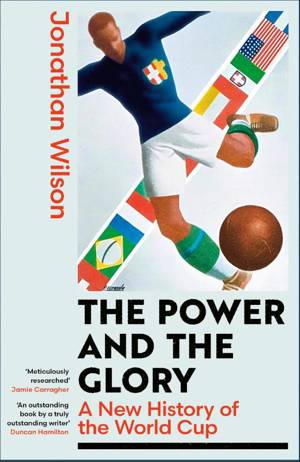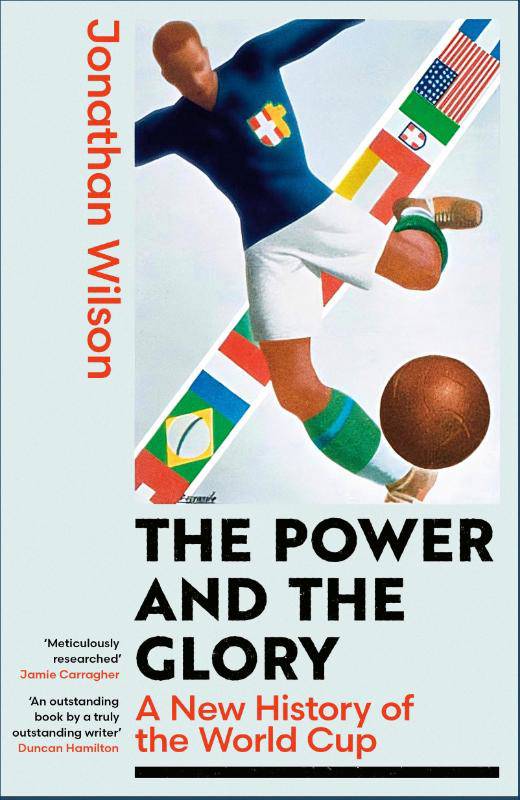
- Retrait gratuit dans votre magasin Club
- 7.000.000 titres dans notre catalogue
- Payer en toute sécurité
- Toujours un magasin près de chez vous
- Retrait gratuit dans votre magasin Club
- 7.000.0000 titres dans notre catalogue
- Payer en toute sécurité
- Toujours un magasin près de chez vous
24,99 €
+ 49 points
Description
The football World Cup is the most watched sporting event on the planet. It has become a global obsession: 211 nations initially entered the 2022 edition. It has been running for almost a century. Yet there is no comprehensive history of the tournament: based on fresh interviews and meticulously researched this book will change that.
By 1930, football had outgrown the Olympic Games. A new competition, run by Fifa, would take international football to the next level. After a shambolic start to the first cup in Uruguay - an incomplete stadium, shoddy refereeing and physios accidentally injuring players - the thrilling final saw Uruguay take on Argentina, beating them 4-2.
From those chaotic beginnings grew the modern World Cup, a cultural phenomenon that draws the world together like nothing else, and that gives it a profound importance. Ask a random person on a random street to name a moment in the history of Senegal and they may well say Pape Bouba Diop's winner against France in the 2002 World Cup, a goal not only against the defending champions but against the former colonial masters.
The World Cup has political significance. West Germany's success in 1954 was a moment of reintegration into global society. Progress to the semi-finals in 1998 gave a huge boost to Croatia's sense of national self. But football is an unpredictable sport. In the so-called Soccer War of 1969 tensions between El Salvador and Honduras were ignited by a World Cup qualifier. More recently, the focus for governments seeking to political gain has been hosting the tournament, with the World Cups in Russia and Qatar clear examples of sportswashing, staging a tournament to project an image of a thriving society.
There has never been a comprehensive history of the World Cup that has considered not only the matches and goals, the players and coaches, the tales of scandal and genius, the haggling and skulduggery of the bidding process, but has also placed the tournaments within a socio-political framework. The story of the World Cup is also the story of the world; this book tells its definitive history.
By 1930, football had outgrown the Olympic Games. A new competition, run by Fifa, would take international football to the next level. After a shambolic start to the first cup in Uruguay - an incomplete stadium, shoddy refereeing and physios accidentally injuring players - the thrilling final saw Uruguay take on Argentina, beating them 4-2.
From those chaotic beginnings grew the modern World Cup, a cultural phenomenon that draws the world together like nothing else, and that gives it a profound importance. Ask a random person on a random street to name a moment in the history of Senegal and they may well say Pape Bouba Diop's winner against France in the 2002 World Cup, a goal not only against the defending champions but against the former colonial masters.
The World Cup has political significance. West Germany's success in 1954 was a moment of reintegration into global society. Progress to the semi-finals in 1998 gave a huge boost to Croatia's sense of national self. But football is an unpredictable sport. In the so-called Soccer War of 1969 tensions between El Salvador and Honduras were ignited by a World Cup qualifier. More recently, the focus for governments seeking to political gain has been hosting the tournament, with the World Cups in Russia and Qatar clear examples of sportswashing, staging a tournament to project an image of a thriving society.
There has never been a comprehensive history of the World Cup that has considered not only the matches and goals, the players and coaches, the tales of scandal and genius, the haggling and skulduggery of the bidding process, but has also placed the tournaments within a socio-political framework. The story of the World Cup is also the story of the world; this book tells its definitive history.
Spécifications
Parties prenantes
- Auteur(s) :
- Editeur:
Contenu
- Nombre de pages :
- 608
- Langue:
- Anglais
Caractéristiques
- EAN:
- 9780349145716
- Date de parution :
- 16-10-25
- Format:
- Livre broché
- Dimensions :
- 155 mm x 235 mm
- Poids :
- 816 g

Les avis
Nous publions uniquement les avis qui respectent les conditions requises. Consultez nos conditions pour les avis.






